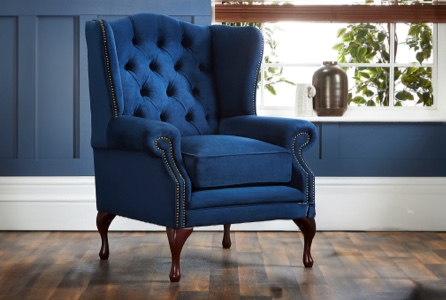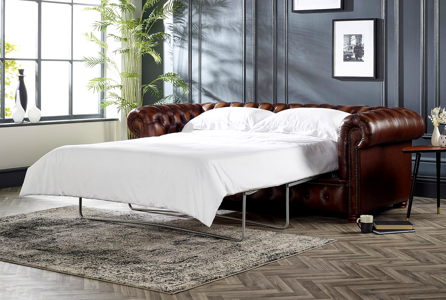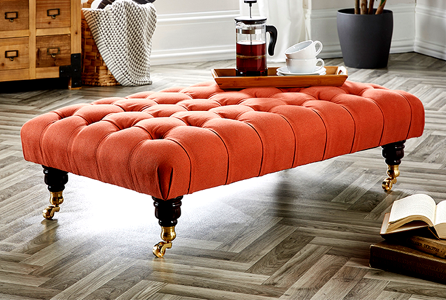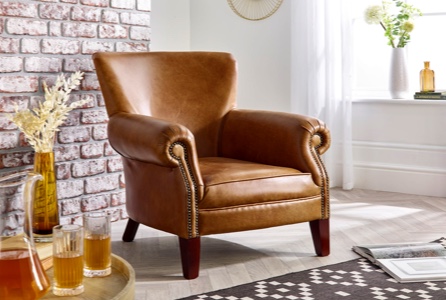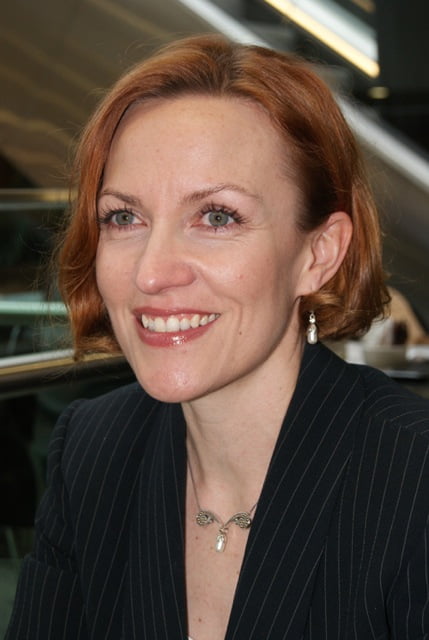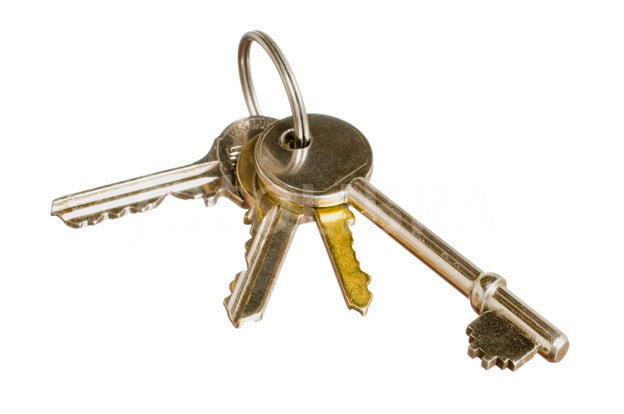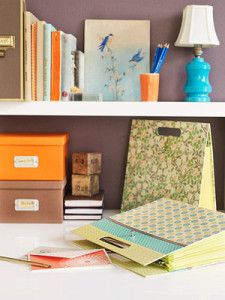How To Guides
Get Organised in 2014: Say Hello to Cory Cook
Apparently, January is Get Organised (GO) Month, who knew? But, thinking about it, the first month of the year marks the perfect time to put a stop to disorganisation and say hello to a brand new and more efficient you.
Christmas, while it’s a lovely time to catch up with family, put aside any stresses and strains and kick back, the truth is it can be far from relaxing. It’s chaotic, in fact. And your home ends up far more cluttered, even when you’ve spent more than a week in it and away from the office. We blame Father Christmas and all the presents he brings!
Image: Via Pinterest
We may be at the end of the month, but we won’t let that bother us. We say ‘start as you mean to go on’, so what better time than now to bring you a light-hearted interview with US-born London-based Cory Cook. She’s a professional organiser – she’s so good at organising, in fact, she helps others get organised – for a living! And while January is over as of midnight tonight, that doesn’t mean it’s a chance to become slack and creep back into unorganised chaos. Make some small changes now and follow them through for the rest of the year. Here’s part one of a fun interview with Cory…
Organisational Guru: Cory Cook
Distinctive Chesterfields (DC): So, Cory, what was it that made you initially take the plunge and enter the self-improvement industry?
Cory: Some years ago, during my corporate career, I started studying the basics of Feng Shui. What immediately caught my attention was the importance of first clearing the clutter from our environment before putting other Feng Shui applications into practice. I hadn’t considered that I had any ‘clutter’ around, but figured I’d address everything I owned anyway. I was amazed. Bags of items left my flat. While going through this process of editing all my obsolete ‘stuff’ both at home and at work, it hit me that this is what I was wired to do. I really ‘got it’.
But de-cluttering on its own wasn’t enough. Organising what remained, and keeping it that way, was equally as important. I became enamoured with studying and experimenting with various systems of organisation for homes and the workplace that would be sustainable.
Eventually, I trained formally in organising, property presentation as well as time management. As much as I loved my corporate career at the time, I knew I could make a meaningful difference as a professional organisation expert. I love the methodology and the results are often life-changing, all of which compelled me to enter this profession.
“The results [of getting organised] are often life-changing”
DC: Tell us a little about the different services you offer. How can you help a busy professional enjoy, say, more family or social time, as a result of being more organised?
Cory: My main services are: home organising, home office organising, wardrobe organising, paper management and filings systems, time management and un-pack and move-in for relocations. I help people organise as much or as little as they need. It could be one room, an area, or a complete household overhaul.
The pace of life is fast these days, so being organised is even more important than ever before. A disorganised home or office eats up more time than we realise. Those minutes lost searching for keys or important documents add up to untold hours of valuable time we could be spending on other pursuits.
In working with busy individuals I help them set up their homes and/or work environments in a way that matches their individual habits and working styles. That way, access to what they need when they need it is quick and intuitive. We eliminate all the excess stuff that’s been getting in the way and slowing them down. All rooms and areas have a defined purpose, and everything is assigned a home. Having a place for everything and everything in its place gives us clarity, focus and peace of mind.
We usually also work on time management to structure the day and week so that all important activities are accounted for and there’s a blueprint to follow. This removes the guesswork of what to do when, and also ensures that a good balance of restorative activity, such as important family or social time, gets included.
“Those minutes lost searching for keys or important documents add up to untold hours of valuable time we could be spending on other pursuits.”
DC: Over on your website youve written a blog article which states €˜Clear Your Space, Clear Your Mind. How important would you say being organised is to your overall emotional well-being?
Cory: It is crucial! Whether we realise it or not, everything we own calls on our attention. Clearing our space means eliminating everything that no longer serves us. When our home is overrun by too many things, we can lose touch with what we actually have. Before we know it we feel a lack of control, as our belongings have taken control over us. It’s important to recognise any clutter that’s muddying the waters and take action. It didn’t appear overnight, so it may not seem obvious at first, but clutter appears in many forms.
The general application is anything we no longer love or use. However, clutter is also indecision or anything unfinished, broken, incomplete, not put away, the wrong size. It’s anything that makes us feel sad, guilty, irritable or anxious. And, it’s not just limited to ‘stuff’.
Consider how you spend your time, what activities do you participate in regularly that are draining or hold no real meaning for you? Identifying what we no longer need, and deciding to let it go, will have countless benefits to our overall emotional well-being. Consider this, if it makes you sad every time you look at something you’ve held onto out of guilt or some obligation, you continuously reignite that sad feeling. However, once you let the object go, you are released from the negative attachment. That alone lifts a huge emotional weight.
Clearing out the old opens new space for new things, new thoughts and ideas, new experiences. With room to think you’ll enjoy a sense of being in control again
DC: Any plans to write a €˜How to Book or autobiography compiling tips for those you want to organise their life/home/work better?
Cory: Aha! You’ve cottoned onto my cunning plan. Yes, there’s a book (or two) in the works this year, so definitely watch this space
DC: Okay, so whats one thing everyone €“ no matter how busy €“ should be able to do each day (with minimal effort) to ensure everyday life is that little bit easier?
Cory: Perform a daily or nightly ‘sweep’. Don’t worry, you can leave the broom in the closet for this one! I’m referring to a few minutes each day to make a room-by-room sweep of your home and return everything where it belongs. Think ‘ready for tomorrow’ or ‘ready for next use’. Starting each day with everything already in its place will do wonders for your energy and put you a step ahead of the game.
Is it time to get organised in 2014?
Add the sweep to an established routine to make building the habit easier, e.g. just after dinner, or just before your evening bath. Whenever it is, make your rounds without fail. If you share your home with others, get everyone involved. If you have children make a game out of it, set a timer and award them with a points system. It’s a good habit for children to develop early on. Plus, applying this rule of ‘little and often’ is a manageable way for even the busiest person to make everyday life that little bit easier
DC: Tell us a little about yourself. How do you like to relax on your day off? And do you have any interesting hobbies?
I’m originally from Las Vegas, where I lived until moving to London in 2001. I’ve always been drawn to Europe, particularly France and enjoy visiting as often as I can – especially for cycling.
In terms of hobbies I compete in Ironman triathlons and have completed four to date. During training season much of my spare time is spent swimming, cycling and running. The best part, besides the finish line, is the full license to eat! I do, however, practice what I preach and always guard time at the weekend to unplug and recharge the batteries. As active as I am at work and training, I’m very good at putting my feet up.
A big thank you to Cory for sharing part one of this interview with us.
How are you ensuring you stay organised in 2014 and beyond? Do you have any special hints and tips you’d like to share? And don’t forget to keep your eyes peeled for part two of our interview with Cory – it’ll be appearing on this here blog early next week.


